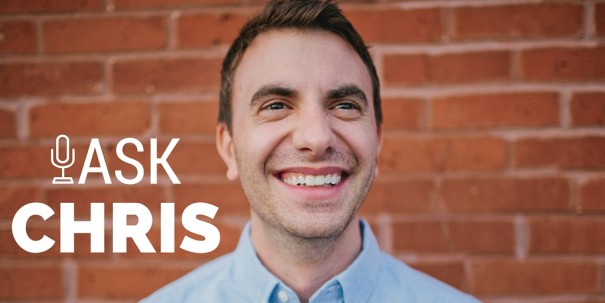Where should my money go?

Today’s question comes from Gabrielle. She asks:
“I constantly feel like I’m not putting my money in the right place. How much should go towards student loans? Savings? 401(k)? When do I start investing? It feels so vague.”
In my early 20s my big goal was to buy a house. Of course, I liked the fancy condos downtown that went for $200,000. To come up with $40,000 for a down payment seemed delusional because I barely made more than that.
Instead of saying “I’ll buy a place someday,” I told myself I had three years. Here, I’ll show you the math I did.
$40,000 = $1,100 x 36 months
So I set up an automatic transfer that took $1,000 from my checking account every month and sent it to a high interest savings account.
With this, plus rent and everything else, I didn’t have much money leftover. And I remember feeling jealous when my friends were buying new stuff I knew I couldn’t afford. (Do you see the underlying psychology here?)
And here’s the exact framework I used to figure out where my money should go.
1. Don’t leave free money on the table
Contribute enough to get the full company match for your 401(k) or similar retirement account. Your future self will thank you.
2. Have a minimum of $1,000 saved
Most people can’t handle a $500 emergency. Don’t be like them. (And stuffing your savings account with three to six months of cash is even better.)
3. Create one goal
“Take a vacation to Paris.”
“Increase my savings.”
“Save a down payment for a house.”
“Pay off my student loans.”
4. Make the goal specific, timebox it, and break it down
Example: “Increase my savings” becomes “Save $10,000 by next February.” Here’s the math for that.
$10,000 = $800 x 12 months
Are you with me? Okay, good.
5. Map your money.
I’ll walk you through how to do this. Let’s say your take-home pay is $4,000 a month.
Rent = $1,600
Student loans = $1,000
Savings = $800
Everything else (bills, clothes, eating out, groceries, etc.) = $600
Do you see that you really only have $600 to live on? So the key here is to prioritize how this is spent. (Hint: Brutally cut out everything you don’t care about so you can spend on the things you value.)
6. Build habits through the power of automation.
You can’t rely on pure discipline to reach your goals because it eventually runs out.
Instead, when you set up automatic transfers to pay your rent, and your student loans, and to build your savings, what you’re really doing is creating habits, which is discipline.
